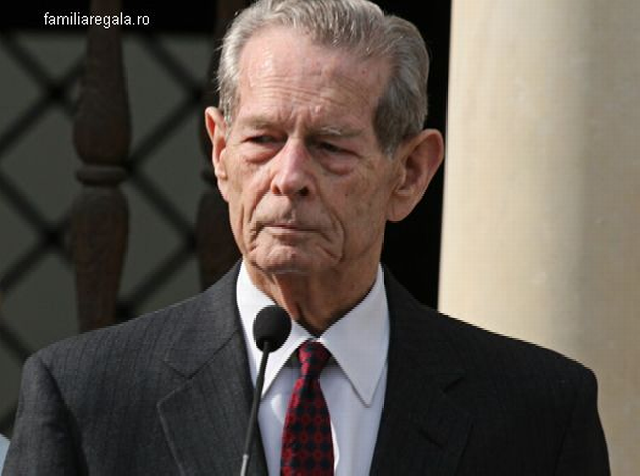75 years since the events of August 23, 1944
A brief timeline of the events that day

Steliu Lambru, 26.08.2019, 11:00
August 23, 1944 was a day that
marked the historic destiny of Romania between 1945 and 1989. On the afternoon
that day, King Mihai I overthrew and arrested Marshal Ion Antonescu, the head
of the Government, and his acolytes and brought Romania out of the Alliance
with Germany. His actions shortened the war by approximately six months, some
military experts believe. The change brought great joy to the population, who
thought that day would open up a period of peace and economic prosperity, as
well as a restoration of the democratic political system destroyed by Fascism
all over Europe. Unfortunately, people couldn’t foresee the advent of the
bloodiest political regime in the history of Romania – communism.
The Center for Oral History of the
Romanian Radio Broadcasting Corporation stores a 1984 interview Mircea Ionnitiu
gave to Radio Free Europe. Ionnitiu went to school with Mihai I and advised the
monarch throughout his hardest times. Ionnitiu recalled hostilities erupted
between Romania and Germany in the wake of Antonescu’s arrest.
On the morning of August 24 hostilities broke out with
Germany. For 24 hours, the capital city was subjected to terror raids, a series
of civilian buildings were damaged or razed to the ground and civilians got
gunned down on Victory Road. The Government declared war to Germany following
these hostile actions, and ordered the army to fight off the raids and drive
the enemy out of the country. The last pockets of German resistance are
cleansed from the capital city and the last German troops stationed in the
Baneasa-Otopeni region are repelled.
During the communist regime,
official propaganda talked of the Soviet contribution to the events of August
23, 1944 and the liberation of Romania. Under the Ceausescu regime, the focus
was laid on the contribution of the communist party to the change that occurred
on August 23 and to the liberation of Romania. Yet a major contribution was
left out of history books all those years, namely the assistance of the US Air
Force in liquidating the German resistance in the days that followed the change
of power on August 23, 1944. Mircea Ionnitiu:
What was surprising was the attack of the US Air Force on
German installations north of Bucharest, as per the instructions communicated
on August 21. US heavy bombers attacked on August 26 at 1 AM. Their actions
helped the Romanian military eradicate the presence of German soldiers around
the capital city. Following this action the Romanian army captured some 700
prisoners, although it sustained some 1,400 casualties. Until August 30 the
rest of the country was liberated of all German resistance pockets, a total of
56,000 prisoners of war being captured, at a cost of 8,500 dead or gravely wounded.
Fierce battles unfolded in Ploiesti, which held the largest concentration of
German military. Worth noting is the country was liberated exclusively by the
Romanian army.
Mircea Ionnitiu also spoke about
the Soviet contribution to fighting off German resistance.
The only operation that
involved the participation of Soviet troops was the cleansing of Ploiesti,
where Soviet troops entered the battle on August 29. Over 265 thousand Romanian
soldiers helped win back northern Transylvania from Hungarian occupation, and
some 8,500 were killed or wounded in this operation. Soviet troops helped carry
out military operations in Transylvania. The campaign ended on October 25,
1944, when Satu Mare and Carei in the north were liberated, the very day King
Mihai turned 23.
Today, we look back on Romania
breaking its alliance with Germany as a clever maneuver by means of which the
king and his entourage did everything in their power to ensure Romania gets off
easily from a very unpleasant situation. Mircea Ionnitiu believes however that
August 23 was not a day to celebrate.
August 23 is not a celebration. It’s a day we need to
remember with utmost respect for those who gave their lives on the fields of
Bessarabia, in the steppes of Ukraine, on the shores of the Don and Volga
rivers, in the valleys of the Caucasus and Crimea, but also those who fell
defending Bucharest and sacrificed their lives liberating Cluj. It’s a mourning
day, when we, the survivors, need to reflect on the moral value of the useless
sacrifice made for the state and for the moral and spiritual reintegration of
the nation. To conclude, I recall the words of King Mihai in the proclamation
of August 23, 1944: ‘Our people knows how to master its own fate! Whoever
opposes our decision, which stems from our free will and does not bear down on
anyone’s liberties, will be an enemy of our people. The new Government means
the start of a new era, where the rights and liberties of all the citizens are
safeguarded and will be observed’. This is an excerpt from the King’s
proclamation, and 40 years on we must continue to fight to attain these goals.
75 years since the events of August
23, 1944, we can argue Romanians have understood what the context back then was
like, and why people felt the need to do their duty to the country.
(Translated by V. Palcu)





























